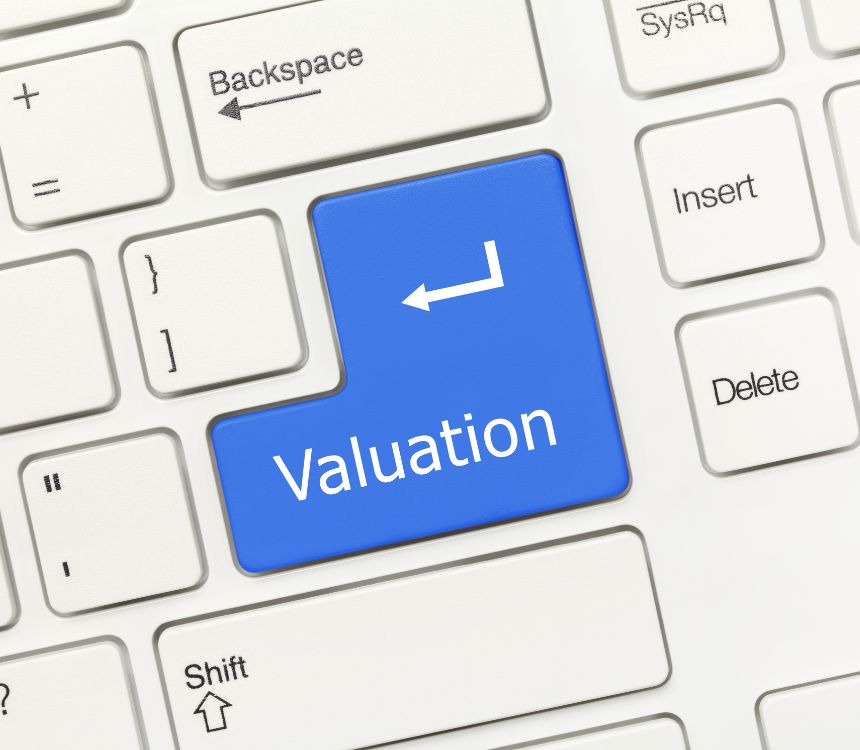If you’re buying a home with a mortgage in the UK, chances are your lender will carry out a mortgage valuation. It’s a standard part of the process, but many buyers aren’t quite sure what it involves or why it’s needed.
In this article, we’ll explain how a mortgage valuation works, why it matters, what it costs, and how it’s different from other property surveys.
What is a Mortgage Valuation?
A mortgage valuation is a basic assessment of a property’s market value. It’s done on behalf of the mortgage lender, not the buyer. The main purpose is to check whether the property is worth the amount you’ve agreed to pay — and whether it’s suitable to lend against.
It’s not about spotting every crack or damp patch. It’s simply to reassure the lender that the property is a sound investment.
Looking for mortgage advice you can trust?
Speak to our expert brokers today – we’ll guide you through every step, including essential property searches.
How Does a Mortgage Valuation Work?
Once your mortgage application is underway, your lender will arrange for a valuation. Here’s what usually happens:
- Booking the Valuation: The lender appoints a professional valuer — often a chartered surveyor — to carry out the assessment. Some lenders offer this for free as part of the mortgage deal, while others may charge a fee.
- Desktop or Physical Inspection: Depending on the property and lender, the valuation might be done remotely (a ‘desktop’ valuation using data and recent sales) or in person. Older or unusual homes usually require a site visit.
- Valuation Report: The surveyor will check recent local sales, compare the property to others nearby, and consider its condition. They’ll then give an estimated market value.
- Decision Time: The lender uses this figure to decide whether to go ahead with the mortgage, reduce the loan amount, or ask for more information.

What If the Valuation is Lower Than Expected?
Sometimes, the valuer might decide the property isn’t worth what you offered. This is known as a down valuation.
If that happens, the lender might:
- Offer you a smaller mortgage based on the lower value
- Ask you to pay a bigger deposit
- Reject the mortgage altogether
You can try to renegotiate the price with the seller, or cover the shortfall yourself. It’s not ideal, but it’s not the end of the world either — it just means being prepared for a few more decisions.
Is a Mortgage Valuation the Same as a Survey?
No — and this catches a lot of people out.
A mortgage valuation is purely for the lender’s benefit. It doesn’t tell you much about the property’s condition. If you want peace of mind before buying, consider getting your own homebuyer report or full building survey, especially if the house is older or has been extended.
How Much Does a Mortgage Valuation Cost?
Costs vary depending on the lender and property type. Some lenders offer it for free, while others charge between £150 and £1,500, based on the property’s value.
Always check with your lender before applying — it’s worth knowing what’s included in the deal.
FAQs
No, a mortgage valuation isn’t required by law — but if you’re using a mortgage to buy a property, your lender will almost always insist on one. It’s part of their internal risk checks. Without it, they won’t release the funds.
In most cases, the buyer pays for the valuation, though some lenders include it for free as part of their mortgage package. The cost can vary, so it’s worth checking upfront before applying.
Not always. Some lenders share a summary, but many don’t give you full access because it’s for their use, not yours. If you want a report tailored to your needs, you’ll need to commission a separate survey.
Typically, no. The report is usually brief and doesn’t include photos. If the valuer spots a major concern, it might be flagged, but don’t expect images or detailed notes like you’d get in a full survey.
The physical inspection (if one is done) can take as little as 20–30 minutes. The full process — including booking and report writing — usually takes a few days to a week, depending on the property and location.
It can, but not often. Delays usually happen if the valuer struggles to get access or if there are queries about the property. Booking early and staying in touch with your lender can help things move faster.
If your mortgage offer has already been approved based on an earlier valuation, a price increase won’t automatically affect the deal. However, if there’s a significant gap between the offer and completion, some lenders might want an updated valuation.
No — it won’t go into legal or structural detail. If you’re concerned about past alterations or extensions, speak to your solicitor or arrange an independent survey to look into it properly.
Yes, slightly. New-builds are often valued off-plan (before construction is finished) using developer prices and predicted market values. Some lenders apply tighter criteria to avoid overvaluation risk.
Continue Reading
What should I declare when selling my home?
From exchange to completion: How long does it take and what can go wrong?
Can first-time buyers get a mortgage on a property with subsidence?
What age can you get a mortgage up to?
How do contractor mortgage brokers calculate the maximum mortgage amount?
